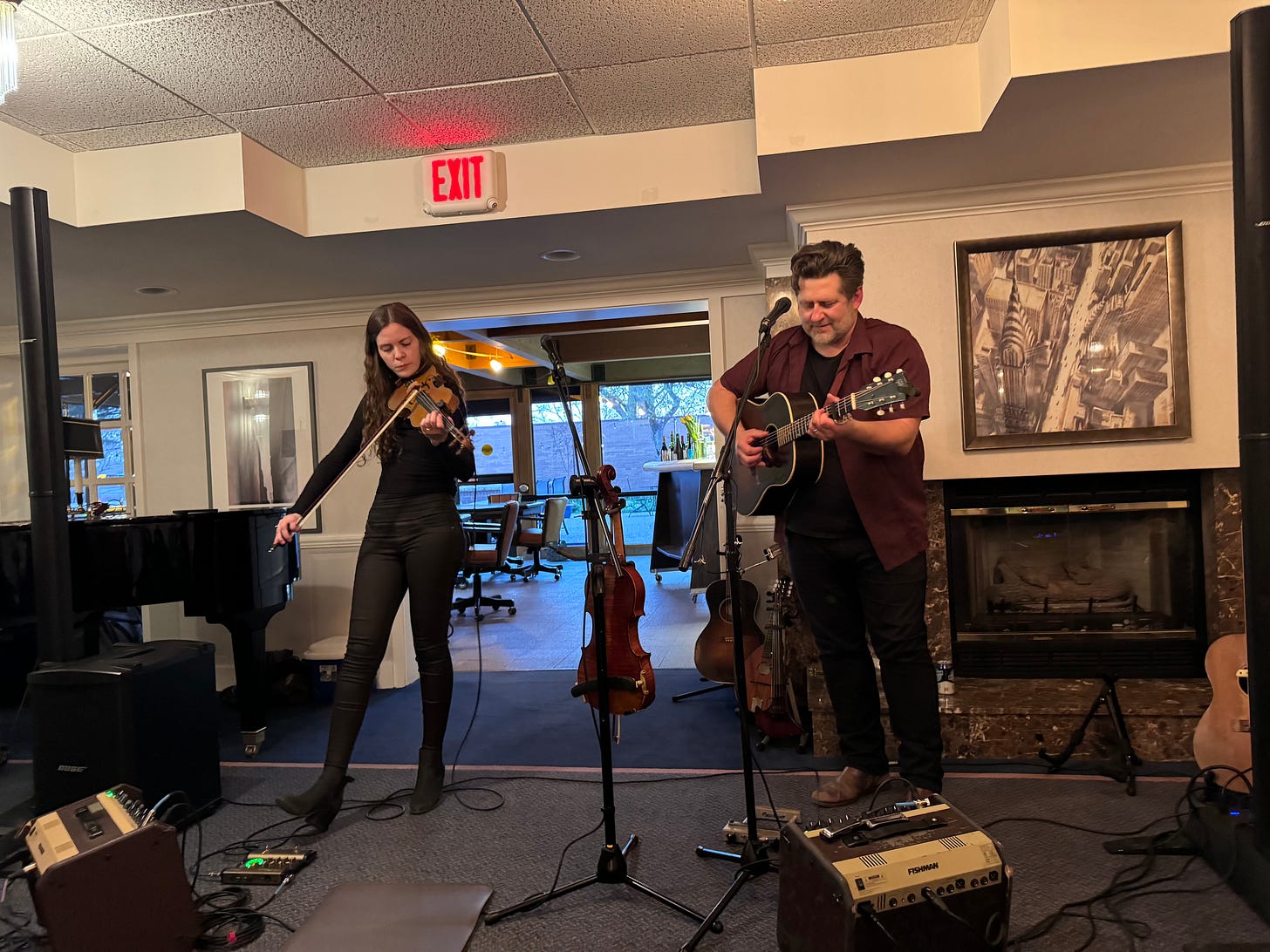Editors note: Richard Gilbert, Julie Gammack’s husband, occasionally pens essays under the title: Sh*t Richard Says. He writes today’s column.

I suppose it’s part of human nature to assume people who don’t see things as we do are not as bright as we think.
At least, it appears that way regarding the significant issues of our day. Notably guns, immigrants, and abortion, to name a few. How to address these is part of what pundits say is polarizing the nation.
One thing that can help sort out likely outcomes is spending a little time with history. Then, decide if that’s the outcome you want this time around.
Abortion, for example
Folks who support a woman’s right to choose to see those who rally under the Right To Life banner as borderline demonic or (more charitably) just not very intelligent. But using history as a playbook, the anti-abortion advocates are competent, committed, and picking up momentum as they play a well-thought-out long game. Over-riding Roe was just one more step toward a national abortion ban…period. In short, I don’t believe what Trump said this week that upset Pence, his former sidekick—Trump’s in on the con.
A good place to start to get insight into this likely playbook is an excellent book published in 2010: “Last Call, the Rise and Fall of Prohibition.”
As one reviewer said, it is “A fascinating history of America’s most puzzling era, 1920 to 1933, when the U.S. Constitution was amended to restrict one of Americans’ favorite pastimes, drinking alcoholic beverages.”
As popular as you would assume drinking was in the early years of the last century, when a roll call of the states was taken, 46 of the then 48 states voted to ratify a constitutional amendment making booze illegal. Only Connecticut and Rhode Island failed to support the amendment.
It did then and still does now; a proposed amendment requires ratification by three-fourths of the states to be adopted. Do you want to eliminate abortion rights? Get 38 states to ratify an amendment to our Constitution that declares having an abortion anywhere in the nation is against the law. Set out to stack state legislatures with people who would support so-called "Pro-life” agendas. Start picking off states one by one. That’s going on now to take away a woman’s right to choose.
Prohibition
Prohibitionists went state by state, reciting the evils of alcohol. Turned out to be a colossal mess. Taking away the right to have alcohol infringed on an age-old personal freedom. People like to drink more than being 100 percent law-abiding. A drink is a drink, even when Al Capone was serving it. So, Prohibition was repealed by the 21st Amendment in 1933.
Perhaps I may be taking too big a leap here, comparing a state-by-state landslide to outlaw alcoholic beverages to a Constitutional ban on abortion.
But that’s where one should never underestimate what committed minorities will do to achieve stated goals. What triggered this column was when I heard Trump’s televised statement this week: He was trying to address where he stands on abortion, presumably on the advice of supporters who are concerned that the former president is on the losing side of the issue with his MAGA base. Keep them. But try to get some of those suburban moms who helped Biden in the last election. What alerted me was the way he insisted that this was an issue best left up to states, in contrast to many anti-abortion advocates who push for a national ban.
First, he praised himself for making the Supreme Court picks that set up the end of Roe. Then he said, quote: “My view is now that we have abortion where everybody wanted it from a legal standpoint. The states will determine by vote or legislation or perhaps both, and whatever they decide must be the law of the land. In this case, the law of the state. Many states will be different. Many will have a different number of weeks, and some will be more conservative than others, and that’s what they will be.” (It was prevarication to say ‘dismantling Roe was where everybody wanted it.’ But hey, lying is in his nature.)
We’ve seen that when Trump uses a teleprompter, most of the content was prepared for him by someone smarter than him. And someone or several others who have done their homework about how to parse a phrase to set him up to call himself or endorse supporters’ calls for a constitutional amendment. I’ve heard enough political speeches (and written a few) to know that what you’ve heard or read this week was a presidential candidate’s green light for a constitutional amendment which is just another way to get a national ban but not be the bad guy.
Dear Leader
Trump doesn’t need to come out and say he supports a nationwide abortion ban. Let the states decide, he says. But just in case some MAGA legislator in a flyover state wanted to know how his Dear Leader feels about the abortion debate, Trump just gave him a big clue in his statement windup with a fabrication about executing live babies at full term.
Is all this too big a hill to climb?
Consider this. In 1916, only four years before the 18th Amendment banning booze was ratified, 23 states had already passed anti-saloon legislation. Today, 21 states have legislated more restrictive rules against the woman’s right to choose than ever did Roe vs. Wade. Of those 21, 14 have legislated a complete ban already. Need hunting grounds to get enough states to ratify? Got a good shot at those 21 states. They need to tip 17 more state legislatures. Better than halfway to 38. Small-population states are less expensive for media buys and political ground games. This is not a majority rules play. This comes down to one state, one vote, not one person, one vote. However, the outcome, like Prohibition, is a constitutional amendment that becomes the law of the land for the entire nation. The Right To Life forces already have momentum. Trump helped.
Remember, you may have read it here first. And speaking of reading. Order a copy of “Last Call, the Rise and Fall of Prohibition” by Daniel Okrent. My favorite locally-owned bookstore, Beaverdale Books, can get it for you. 515-279-5400.
Richard Gilbert
We are honored to be a part of the Iowa Writers’ Collaborative. Please sample our independent writers from around the state. To receive a Sunday Roundup of all columns posted during the previous week, please subscribe to the
. It is free.The Iowa Writers’ Collaborative Roster
: This Stays Here, Sioux Center
: From Red Earth Drive, Meskwaki Settlement
: Iowa Politics with Laura Belin, Windsor Heights
: Brecht’s Beat, Quad Cities
: My Integrated Live, Des Moines
, The Crossover, Des Moines
, Dave Busiek on Media, Des Moines
, Roundup
: It Was Never a Dress, Johnston
, Art Cullen’s Notebook, Storm Lake
, Dispatches from the Heartland, Huxley
: A Whole New World, Madison County
, Paragraph Stacker, Des Moines
: Second Thoughts, Okoboji and Sioux Falls
: Julie Gammack’s Iowa Potluck, Des Moines and Okoboji
: Fern and Joe, Ames
: Benign Inspiration, West Des Moines
: Rob Gray’s Area, Ankeny
Nik Heftman, Iowa
: In the Dirt, Lovilla
Iowa Capital Dispatch, an alliance with IWC
: Dana James, Iowa
: Chris’s Substack, Iowa City
: View from Cedar Valley, Waterloo
: Deep Midwest: Politics and Culture, Bussey
, Iowa
: Keepin’ It Rural, Calhoun County
: Iowa
: The Inquisitive Quad Citizen, Quad Cities
: Showing Up, St. Ansgar
: Relatively Minor, Winterset
: Wini’s Food Stories, Des Moines
: Between Two Rivers, Cedar Rapids
: Kyle Munson’s Main Street, Des Moines
: The Asian Iowan, West Des Moines
: My Life in Color, Des Moines
: Iowa Boy Chuck Offenburger, Jefferson and Des Moines
: Piatt on Politics Behind the Curtain, Washington, D.C.
: Dave Price’s Perspective, Des Moines
, North Liberty
: The Midwest Creative, Norwalk
: Listening to the Land, Elkader
: Mary Swander’s Buggy Land, Kalona
: Emerging Voices, Kalona
: Unfinished Business, Boone County
: Along the Mississippi, Davenport
: The Racontourist, Earlham
: 988: Mental Healthcare in Iowa, Bondurant
: Talking Good, Des Moines
From Julie:
Richard and I held a house concert featuring the Weary Ramblers, Chad Elliott, and Kathryn Severing Fox. It was outstanding.
It’s time to snag the Early Bird enrollment fee for the Okoboji Writers’ and Songwriters’ Retreat. Wouldn’t you love to attend a workshop with Chad and Kathryn on how they write songs (plus 60 other speakers on memoir, opinion, storytelling, getting started, etc.)?
All skill levels are welcome. There’s a story (and song?) in everyone. This event is seriously fun.
On Monday night of the retreat, Chad and Kathryn, along with 12 other songwriters, will perform in a song circle for OWR IV attendees in the Pearson Lakes Art Center theater in Okoboji. It's all part of the fun.
Here’s a sample of the Weary Ramblers interacting before launching into song. To get updates on their concert schedule, follow Kathyrn on Facebook.





The Last Call is one of my favorite books, not merely because it was a deep dive into political tactics. The Anti-Saloon League figured out that 40 percent were for Prohibition in many states, 40 percent against, so all they had to do was frame an argument to capture 11 % of the vote. BUT... another point made in the book is that for the first time in history, Congress didn't redistrict according to the 1920 census, because Congress could not agree. So the congressional districts of 1910 stayed until 1933, probably having a lot to do with Prohibiltion and the length of time it stayed the law of the land. In 1929 Congress passed a law mandating that the House stay at 435 seats which is how, with three times the population, the House of Representatives has not grown in membership.
As always, great column, Richard. Perhaps it's time for a modern day "Lysistrate".
From Wikipedia: "Lysistrata (/laɪˈsɪstrətə/ or /ˌlɪsəˈstrɑːtə/; Attic Greek: Λυσιστράτη, Lysistrátē, "Army Disbander") is an ancient Greek comedy by Aristophanes, originally performed in classical Athens in 411 BCE. It is a comic account of a woman's extraordinary mission to end the Peloponnesian War between Greek city states by denying all the men of the land any sex, which was the only thing they truly and deeply desired. Lysistrata persuades the women of the warring cities to withhold sexual privileges from their husbands and lovers as a means of forcing the men to negotiate peace—a strategy, however, that inflames the battle between the sexes.[citation needed]
The play is notable for being an early exposé of sexual relations in a male-dominated society. Additionally, its dramatic structure represents a shift from the conventions of Old Comedy, a trend typical of the author's career.[2] It was produced in the same year as the Thesmophoriazusae, another play with a focus on gender-based issues, just two years after Athens' catastrophic defeat in the Sicilian Expedition.